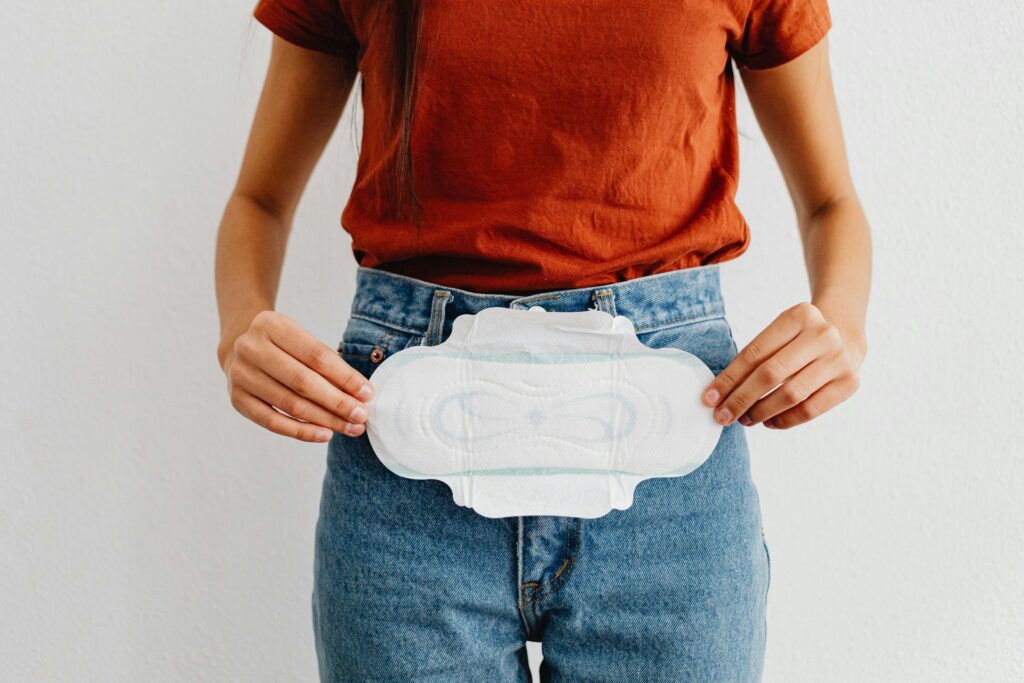Menstrual pain is often attributed to conditions like endometriosis or fibroids, but new research reveals a surprising link to a seemingly unrelated condition: depression.
If you dread your monthly cycle because of intense period pain, it might not just be about your reproductive health. A groundbreaking study has uncovered evidence that depression may actually be a causal factor for dysmenorrhea—a medical term for painful periods.

The study, published in Briefings in Bioinformatics, investigates the connection between mental health and menstrual health, something rarely explored in-depth.
“Both depression and menstrual pain significantly impact women’s quality of life globally, yet the biological link between the two has remained elusive,” explained Dr. Shuhe Liu, a lead researcher in the study. “Our findings aim to pave the way for better care for women experiencing these intertwined challenges.”
Here’s what the researchers found:
- Depression as a Driver of Pain: Women with depression were 51% more likely to experience painful periods. The research suggests depression acts as a cause, rather than a consequence, of dysmenorrhea.
- The Role of Sleep: Sleeplessness, a common side effect of depression, was identified as a mediator, worsening the link between depression and period pain.
- Shared Genetic Pathways: The study also delves into the genetic and molecular connections, identifying specific genes (GRK4, TRAIP, and RNF123) and transcription factors (SMAD2, SMAD3, FOXO1, and STAT3) that might explain the shared biological pathways.
“These discoveries emphasize the role of mental health in reproductive well-being and underscore the need for holistic approaches to treatment,” the researchers noted.

A Bigger Picture:
This isn’t the first time a connection between menstrual pain and mental health has been observed. A 2021 study published in Frontiers in Psychiatry found that women experiencing severe period pain were at greater risk of developing depression. But this new study flips the narrative, suggesting depression might actually trigger menstrual pain.
The implications are significant. Understanding the mental health connection could lead to better strategies for managing period pain, particularly for women who haven’t found relief through traditional treatments.
Also Read: Are Multivitamins good for you? Revealing the Mystery Behind Their Health Claims
What Can You Do?
If you struggle with painful periods and suspect your mental health might be playing a role, consider these steps:
- Seek Professional Help: Speak to a doctor or mental health professional about your symptoms.
- Track Your Cycle and Mood: Keeping a diary of your physical and emotional symptoms can help identify patterns.
- Explore Holistic Care: Stress management, adequate sleep, and therapy can potentially alleviate both mental and physical symptoms.
While more research is needed, studies like these highlight an important message: Taking care of your mental health is as crucial as addressing physical symptoms when it comes to reproductive health.

Stay tuned for further insights as researchers continue to explore these links. Until then, remember that your body—and mind—deserve the best care.
Related Questions
1. How can depression cause period pain?
When you’re depressed, your body releases stress hormones that can increase inflammation and sensitivity to pain. Researchers believe these changes, along with certain genetic factors, may influence how your body responds during your menstrual cycle, leading to painful periods.
2. Can sleeplessness really make period pain worse?
Yes. Lack of sleep can make you more sensitive to pain and affect how your brain processes stress and discomfort. If sleeplessness is linked to depression, it may intensify period pain even more.
3. What if I don’t feel depressed but have bad period pain?
You might still experience painful periods for other reasons, like endometriosis or fibroids. However, it’s worth paying attention to your emotional well-being because mild depression or stress might still contribute to your symptoms without being obvious.
4. Can treating depression reduce period pain?
Possibly. If depression is a cause, addressing it through therapy, medications, or lifestyle changes might help reduce your period pain. It’s always best to consult a healthcare professional for a personalized plan.
5. Does this mean period pain is “all in my head”?
Not at all. Period pain is very real, and this study shows how mental and physical health are interconnected. It’s not “in your head”—it’s about understanding how mental health can affect your body’s natural processes.

